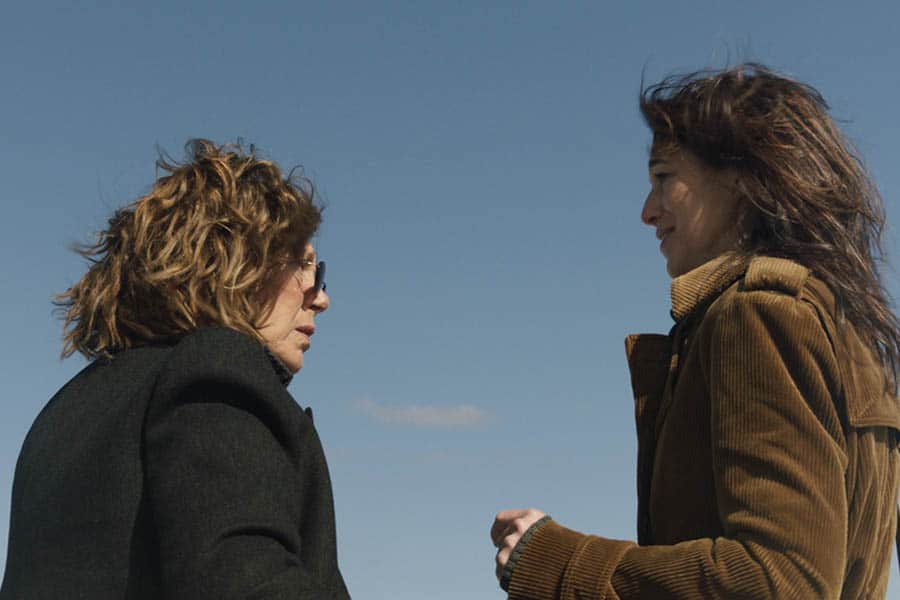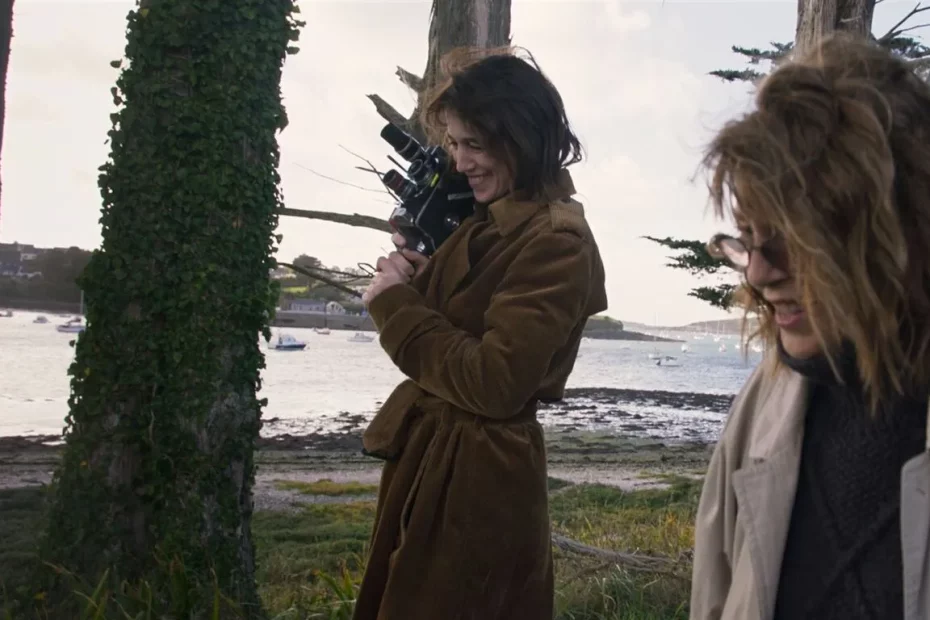When Jaques Rivette made Love On the Ground (L’Amour par terre) in 1984, he said that one of the best reasons for making films is being able to meet people like Jane Birkin. “Sure, I could go to her house and ask her to make tea for me. Since she is very nice, she would, but the meeting would be a short one. If I instead tell her about a film project, I will have the opportunity to spend much more time with her.”
For Charlotte Gainsbourg, no such pretext was needed, being Jane Birkin’s daughter. Rivette was a fierce admirer of Birkin’s work when it was not obvious to be. “Sure, she has done anything, but she has been fantastic in everything”, he opined. 4 years later, Agnès Varda made Jane B par Agnès V, where the director delved deeper into the different facets of Birkin’s fascinating persona(lity).

Gainsbourg’s film Jane par Charlotte, which was screened in the Cannes Premiere section, is not so much a biopic as an emotional portrait of her mother and the relationship between them. Birkin talks at length about her relationship with composer John Barry, and there are, not surprisingly, several mentions of Serge Gainsbourg as well. Among the most heart-wrenching moments are when she talks about the death of her oldest daughter, Kate Barry. In general, it’s a film about loss: Of beloved ones but also about losing your beauty as a woman. “I’ve seen women I admired with faces that look like elephant knees, and I’m not as ok with that as I thought I would be,” she says wistfully.
The structure of the film is quite loose. We see Jane singing at a concert. Then Charlotte and her talking to each other in different ways. One of the strongest moments in the film comes when Kate Barry’s death is discussed. Birkin talks about the guilt she always felt, and here all the nostalgia is swept away by pure grief. Another standout scene is when the two visit Serge Gainsbourg’s apartment in St Germain. Everything seems to be kept as it was, and the ghosts of the past almost feel oppressive. In contrast, a visit to Birkin’s beach house in Bretagne provides bohemian relief. Nothing has been thrown away for 5 decades, including a grill that Serge gave to her.
The film doesn’t add that much to the image of Jane Birkin. It could be argued that the film doesn’t really belong in a cinema but would work better streaming at home. In any case, the film comes together in a beautiful, touching finale, and when the film was over and mother and daughter entered the stage, the rapturous applause seemed to never stop.
In many ways, Jane Birkin is still underrated in some quarters, especially outside France. For me, the most beautiful tribute to Jane Birkin occurs in Alain Resnais’ On connait la chanson (1997). In a film where actors constantly lip-synch to famous hits, Birkin is the sole actor to lip-sync to her own song, Quoi. There are no clips from actual films in Gainsbourg’s film, but that would have been a great way to end the film.

